How adulation and organised crime transformed Diego Maradona from soul of Naples to a drug-addled outcast
An enthralling new documentary depicts how, during his time at Napoli, Maradona was transformed from a god-like football genius and doting father to a bloated outcast and uncaring philanderer

Your support helps us to tell the story
From reproductive rights to climate change to Big Tech, The Independent is on the ground when the story is developing. Whether it's investigating the financials of Elon Musk's pro-Trump PAC or producing our latest documentary, 'The A Word', which shines a light on the American women fighting for reproductive rights, we know how important it is to parse out the facts from the messaging.
At such a critical moment in US history, we need reporters on the ground. Your donation allows us to keep sending journalists to speak to both sides of the story.
The Independent is trusted by Americans across the entire political spectrum. And unlike many other quality news outlets, we choose not to lock Americans out of our reporting and analysis with paywalls. We believe quality journalism should be available to everyone, paid for by those who can afford it.
Your support makes all the difference.It was a routine that might have seemed someway rational at the time, but that in itself only reveals the type of insanity that was beginning to engulf Diego Maradona’s life. At 27 years old in 1988, and at the very height of his abilities and fame, the Napoli playmaker would lower himself to the following “physical programme”.
Sunday: Serie A match.
Sunday night to Wednesday morning: continuous cocaine binge.
Wednesday morning to Saturday evening: “cleanse”, and sweat it all out.
Sunday: Serie A match.
And repeat. Until eventually - inevitably - he couldn’t repeat it any more.
The revelation of that routine is one of many extreme contrasts that director Asif Kapadia concentrates on in his enthralling new documentary, ‘Diego Maradona’, and it pointedly comes at around the half-way point of the film. That’s also the turning point, when so many of the other contrasts become apparent.
Most visibly, the fairly lithe and athletic sportsman - a certain scrawniness symbolised by a scraggy beard - very quickly gives way to a bloated figure with a double chin.
The doting father meanwhile gives way to the uncaring philanderer, unwilling to recognise his son, Diego, but whose own frightened daughters barely recognise him when he comes home as high as the Azteca Stadium.
The “god” - to quote pretty much all of Napoli during most of his time there - becomes “the devil”, or “lucifer”, to quote the Italian media after the controversial 1990 World Cup semi-final.
The genius footballer proclaimed the greatest ever finally becomes an outcast who tests positive for cocaine. He leaves Napoli alone, having arrived to crowds of 86,000 and relentless, suffocating attention.
That is also the point when “Diego” - that “wonderful boy with insecurities” - fully becomes “Maradona”, a personality created “to face all the demands” of his life, who “couldn’t show any weakness”.
This split-personality thesis, and those quotes, come from Fernando Signorini, the fitness trainer charged with getting Maradona fit for both the 1986 and 1990 World Cups. He probably spent as much time with the player as anyone, so it is an informed idea eagerly picked up on by Kapadia.
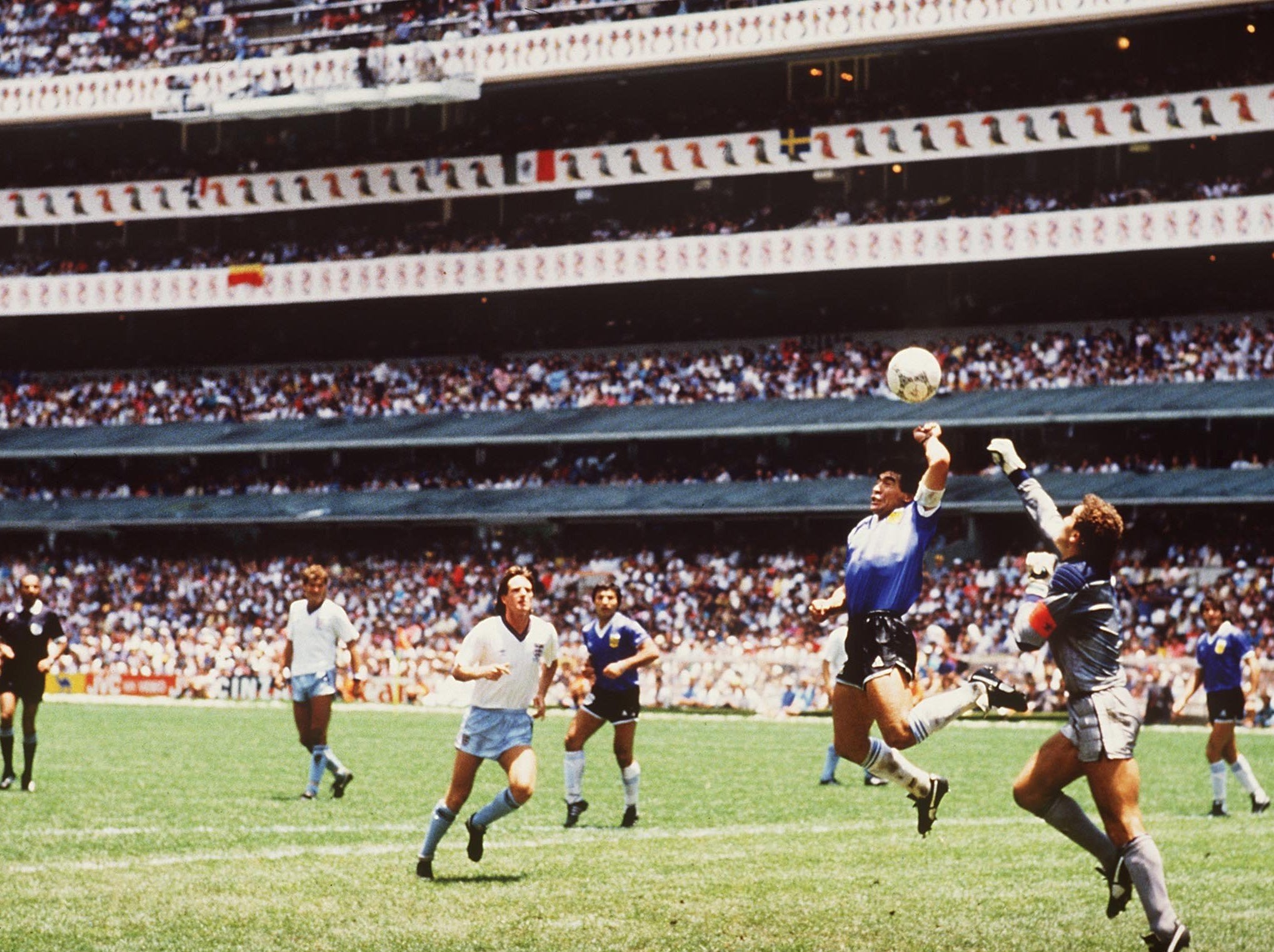
Maradona himself is said to reject that thesis, but it's difficult to see how he could reject much else in the film.
Kapadia offers a hugely sympathetic view of his subject, presenting him as a humble victim of extreme circumstances - and exceptional talent. It is thereby close to a tragedy, which spares the man himself more specific scrutiny of his own actions.
In doing so, it also puts forward an explanation as to why Maradona may not have actually fulfilled that talent, at least by modern game's standards of hyper-excellence.
That is suggested by the fact the film really only focuses on five years of his career, at Napoli, between 1986 and 1991. It was in that period he won five of a mere eight career trophies, and all of his major ones - a World Cup, his only two domestic titles, one Uefa Cup and the Italian Cup.
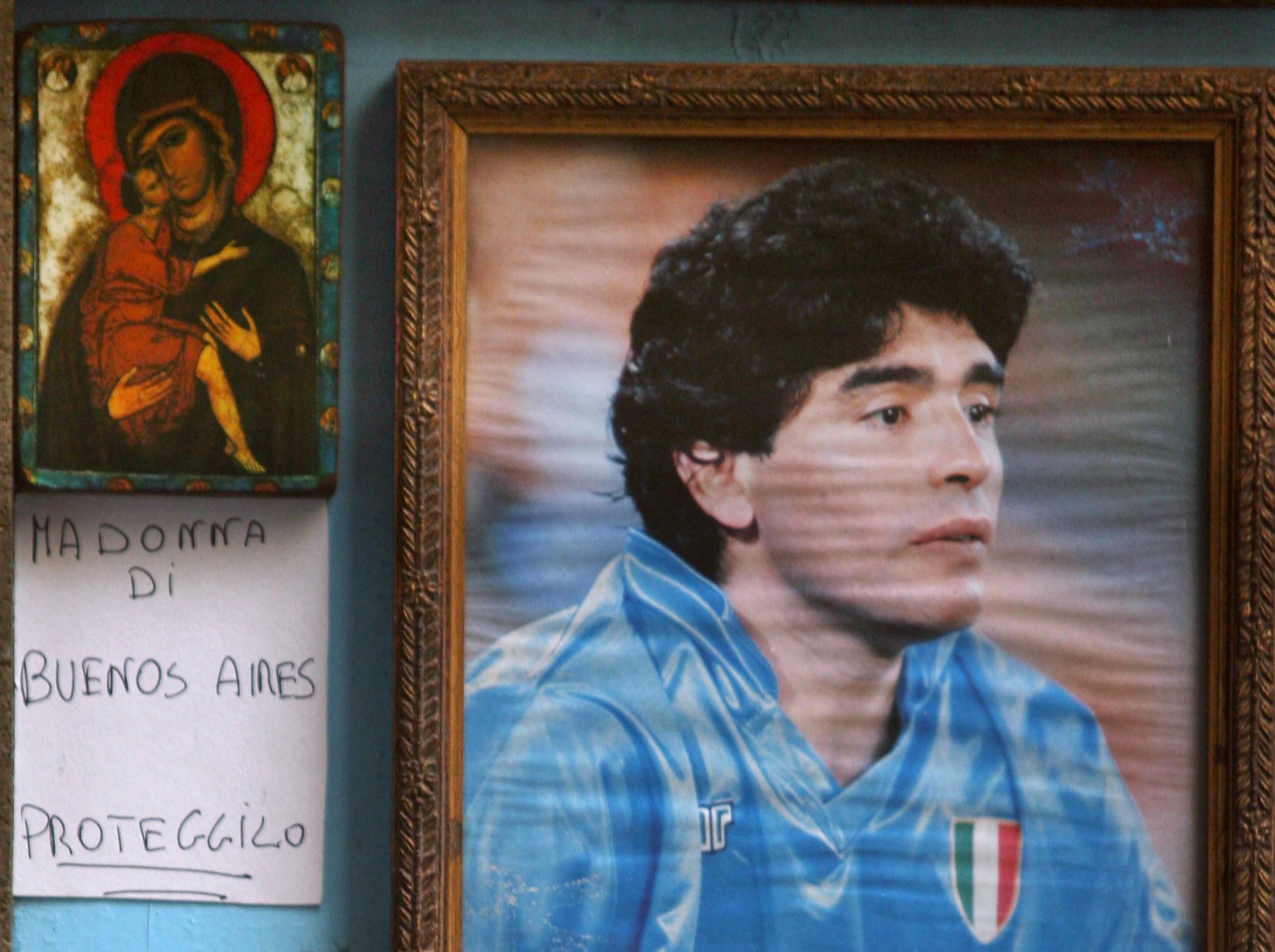
The prestige of Mexico 1986 aside, that is a record that pales next to Leo Messi’s extended excellence of 10 Spanish titles in 15 years, and four Champions Leagues.
It is a record that truly perplexes when the film relays footage of Maradona’s perfect football ability. This, after all, was really why he was considered the greatest.
It’s made so clear to you that this was a player with unmatched control of a football. That control is organic, making the ball a natural extension of his body that doesn’t so much bend to his will as flow with it. That just gives rise to another contrast, and the most important of all.
It is made even clearer to you that, because of such ball control, almost everything else in Maradona’s life was entirely out of control.
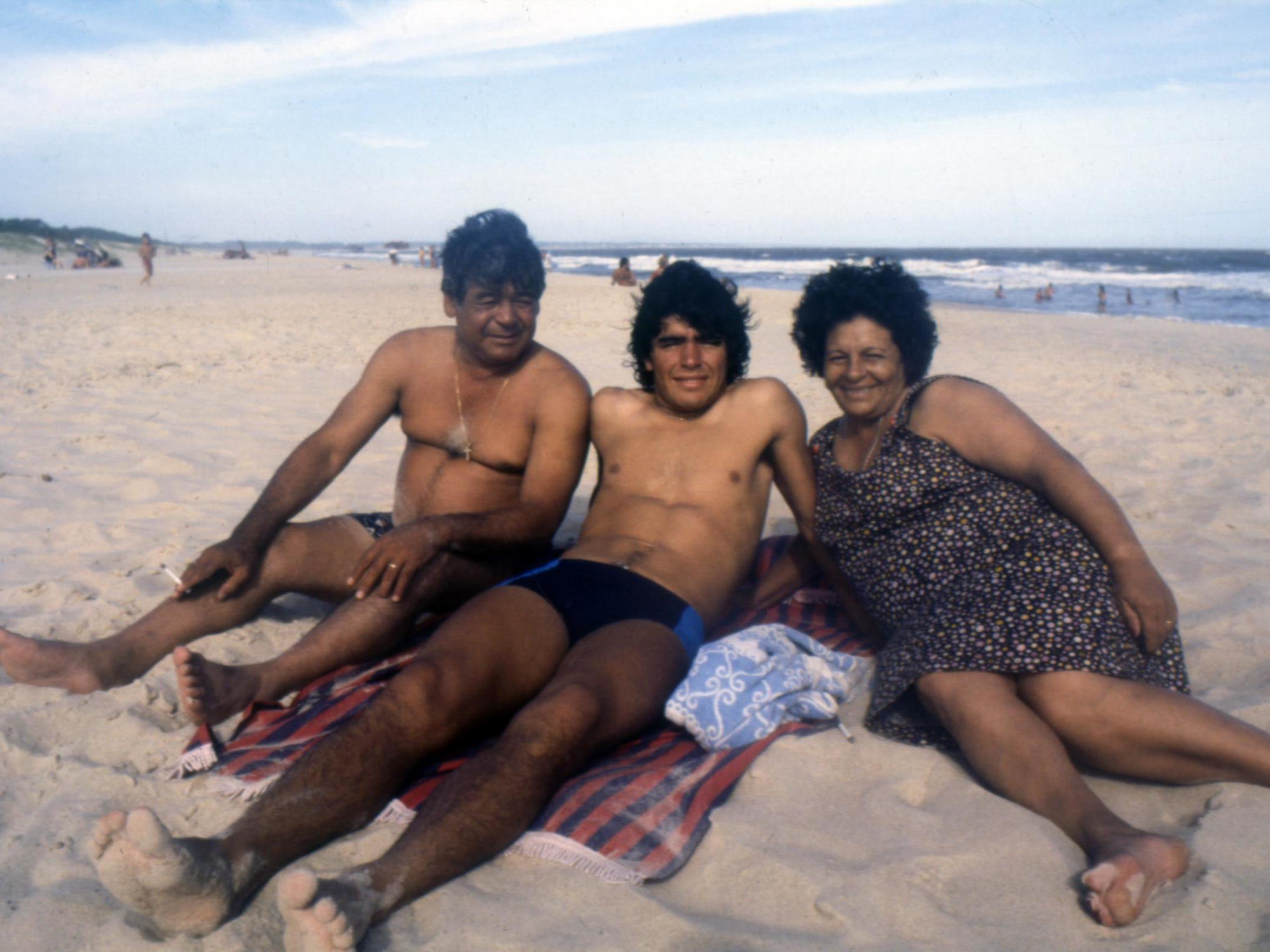
There’s a poignant quote from the present-day Maradona, which is pointedly played at the start and end of the film.
“When you’re on the pitch, life goes away. Problems go away. Everything goes away.”
Maradona had to deal with more problems than most stars, which the film suggests is why he didn’t win everything.
Against the hermetically sealed world of today’s stars, he operated in near-total chaos.
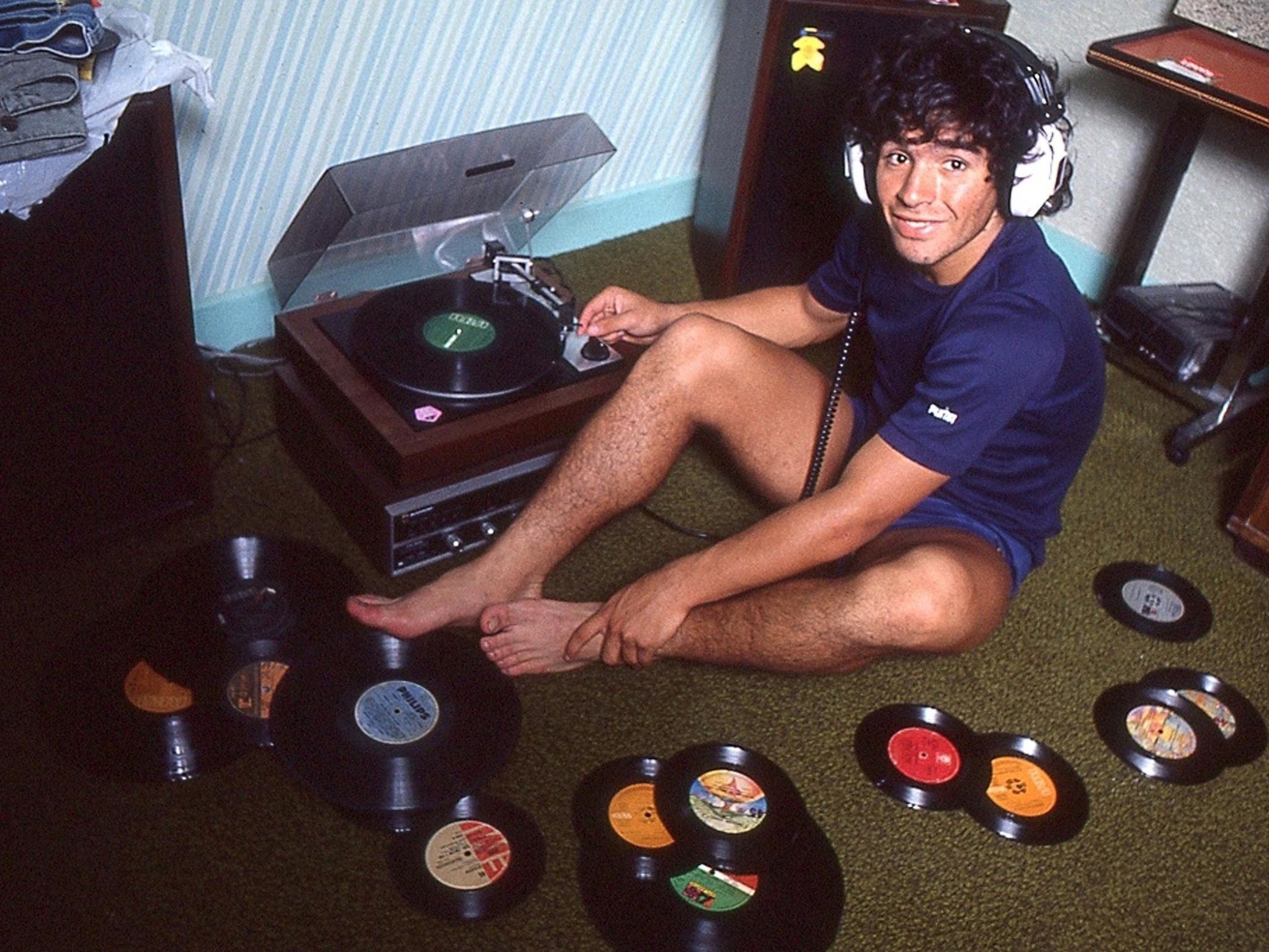
That goes beyond the usual arguments about bad pitches, rules that favoured bad fouls and a tactical era that favoured defensive football, not to mention the lack of super-clubs. Maradona was after all not surrounded by super-talent disproportionate to most opposition, in the way that Messi and Cristiano Ronaldo are.
He was instead surrounded by an awful lot of the worst influences, not least literal organised crime. That influence is initially illustrated with footage of his introductory press conference at Napoli. There, the very first question put to Maradona is about the Camorra, and how it grips the city of Naples.
The president of the club, Corrado Ferlaino, steps in and states the question is “so insulting I won’t answer it”. He then expels the journalist from the stadium, to cheers.
It was a mere six years later that Maradona was similarly expelled from Napoli, and specifically due to the influence of the Camorra, as he tested positive for cocaine. The film makes such a point of highlighting crime boss Carmine Giuliano’s presence of his life, and how that controlled Maradona. “He couldn’t refuse the Camorra.”
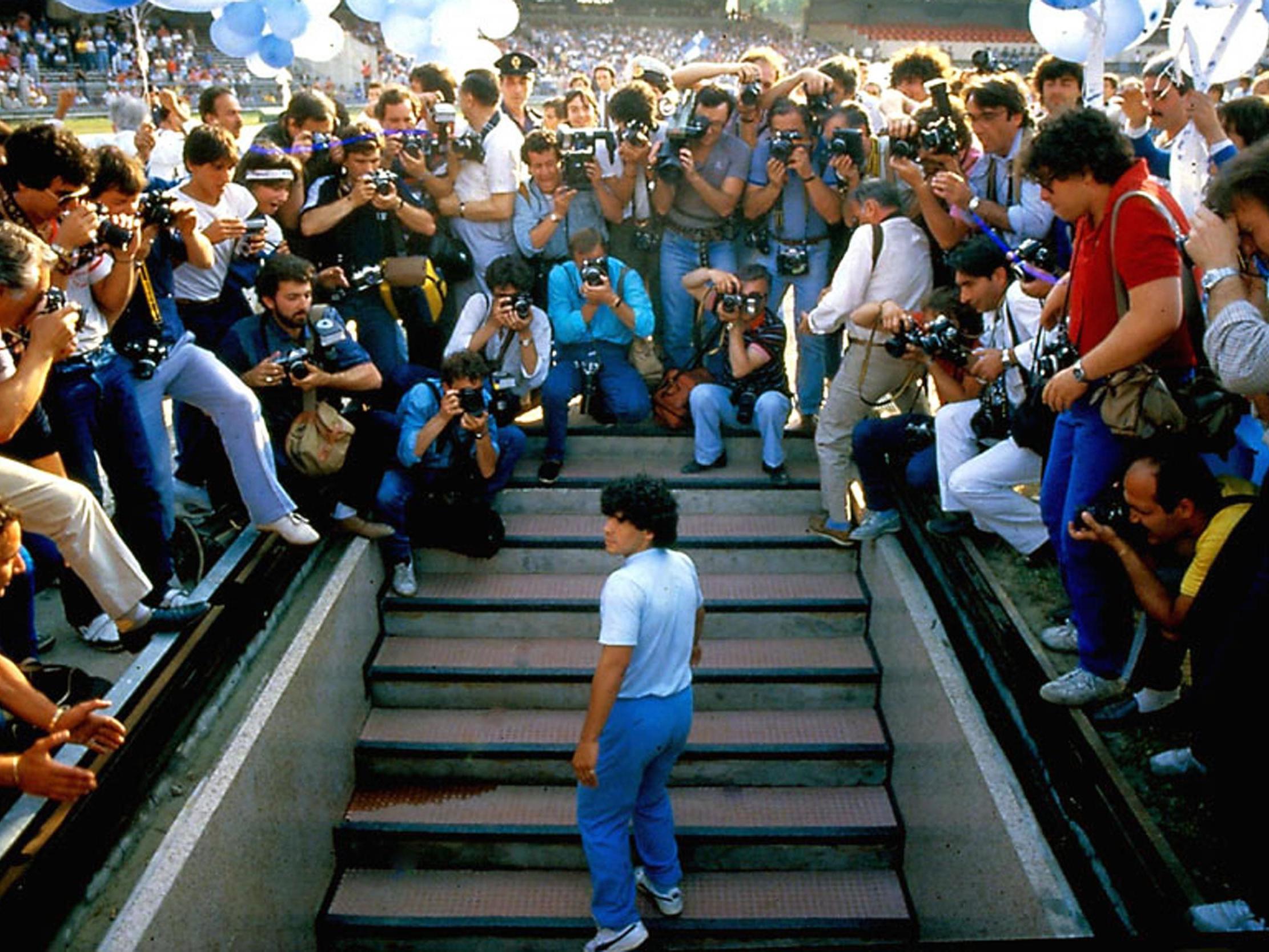
Hence that routine. They all wanted him. “Cocaine had him in its grip,” Signorini says.
The playmaker was 30 years of age at that point, a year younger than Messi is now.
It is simply impossible to get your head around the same happening in the present time, for so many obvious reasons.
The greatest player in the world, banned for 15 months for a scandal like cocaine addiction?!
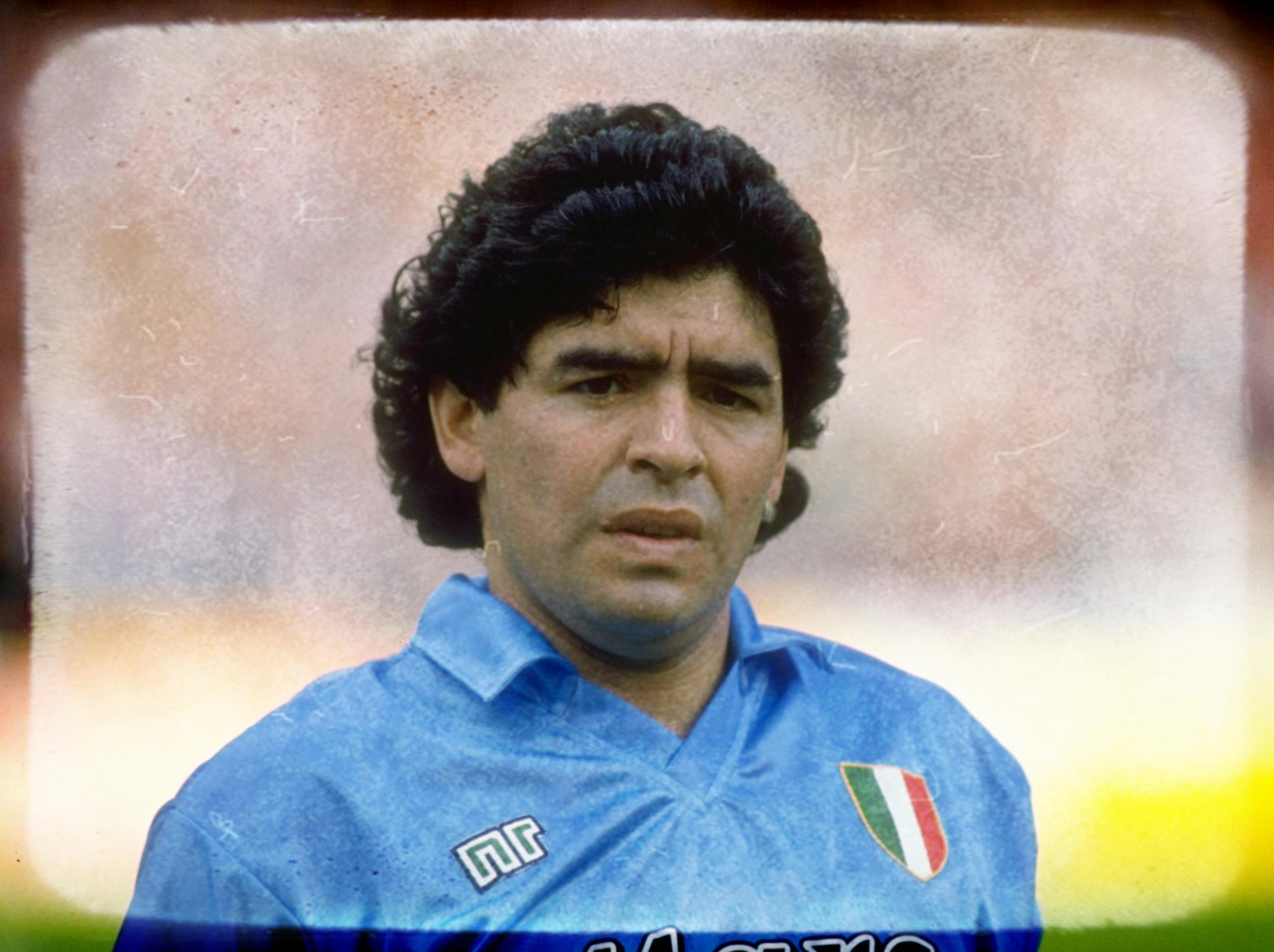
It is mind-boggling.
And yet, at the time, and through the narrative of the film, such insanity seemed entirely logical.
Part of that is actually because of the psychological intensity of his football achievements.
Players like Messi and Ronaldo may have won so much more, but the film strongly argues that Maradona’s achievements meant so much more.
That is the emotional impact of winning trophies for the most histrionic and highly-obsessed fanbases like Argentina and Napoli, who had also been so starved of success.
The scenes of celebration with both are perhaps the most compelling in the film, showing just how adored - in the religious sense of the word - Maradona was.
“You don’t know what you’ve missed,” a banner on a Naples cemetery reads after the 1987 title win.
“He was a demigod,” Signorini says. “It disturbed him psychologically… so 'Maradona' took over.”
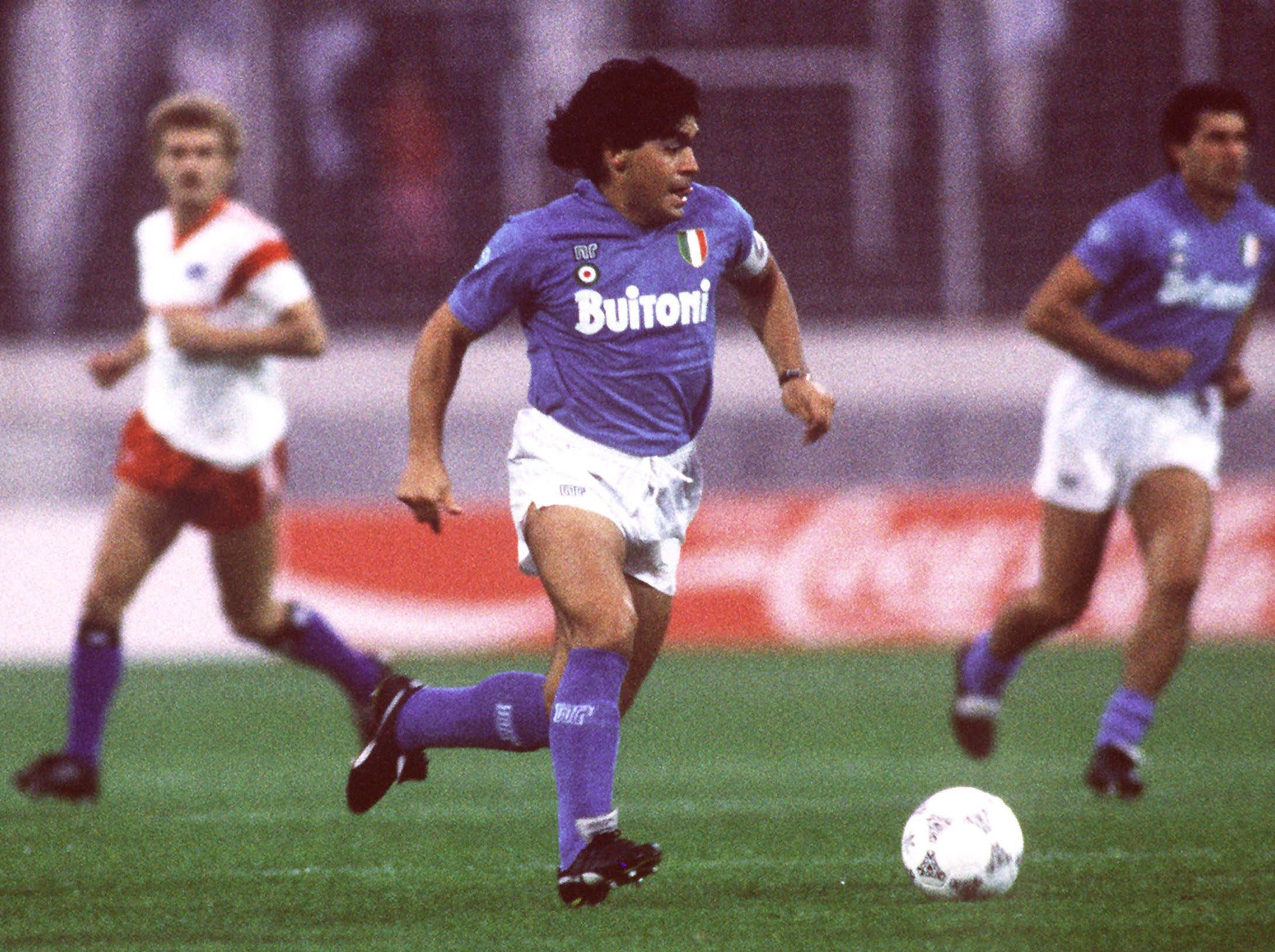
Such scenes also offer other insights into Maradona’s personality, and existing insecurities.
After Napoli win the first title in their history, in 1986-87, he is asked by a journalist what it means.
“This is the greatest moment in my life, honestly,” Maradona answers.
It’s then pointed out to him that he won the World Cup in 1986, a victory that the film does revel in.
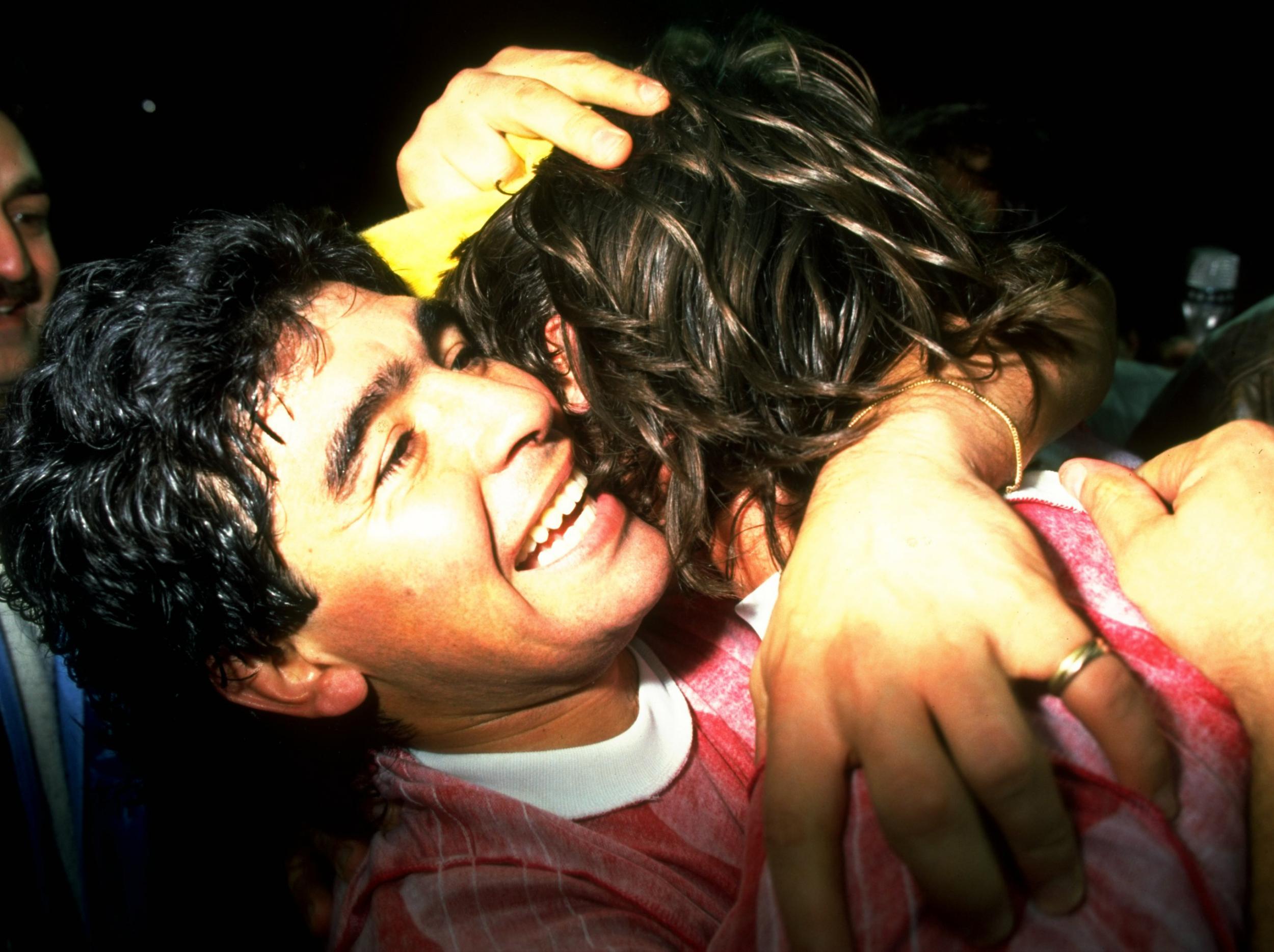
“No, the problem is that I didn’t win it in my country, you see? They took away my chance to be a part of Argentina’s victory in ’78, in my country.”
He still, after all that, had huge hang-ups about not being picked for the 1978 squad when he was just 17.
And he had already developed the hang-ups of the city of Naples, which he enthuses is “my home, for sure”.
One of the most striking scenes of the film is when Juventus supporters are shown openly deriding their southern compatriots. It is described as “racism” by Maradona. It certainly goes beyond limits.
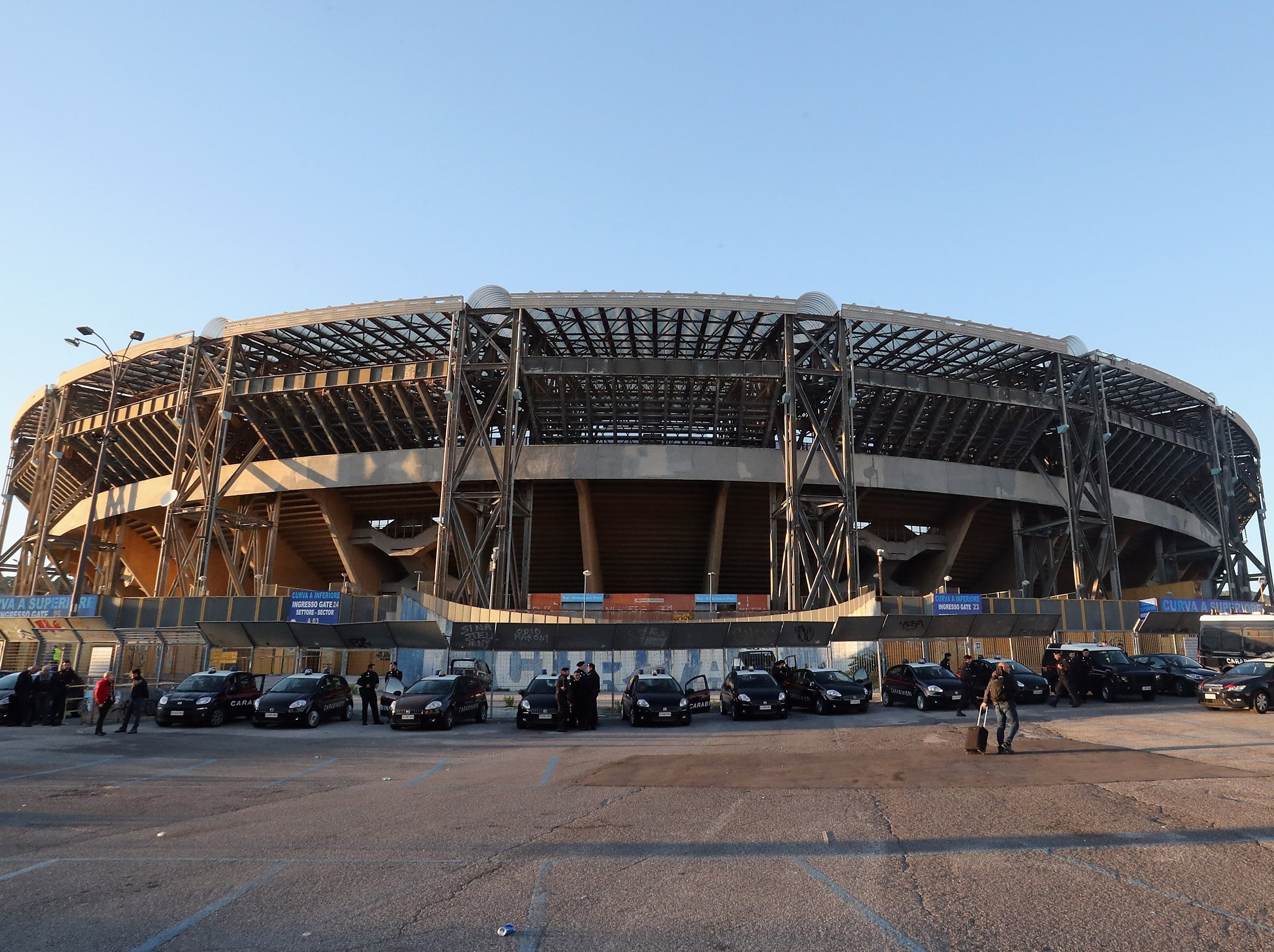
The city's inhabitants are looked upon as filth.
The Neapolitans are told that they’re “colerosi” - cholera sufferers - who need to go home and wash themselves, preferably with the fire of Vesuvius.
“Wash them,” the Juventus fans sing. “Vesuvius, wash them with fire.”
Maradona responds with one of the finest goals of his career, an exquisite hooked free-kick that so satisfyingly beats Juventus.
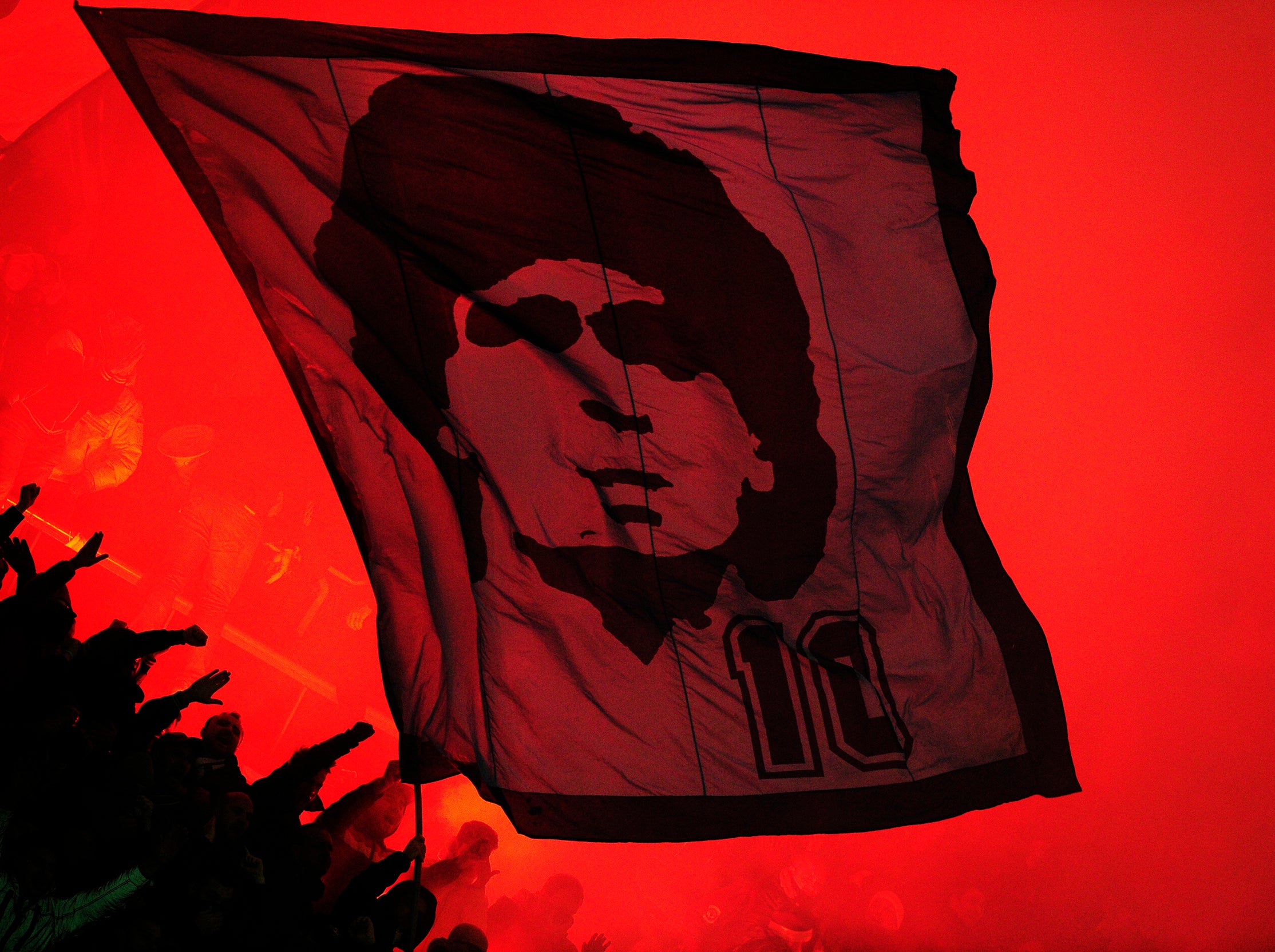
“I felt as though I represented a part of Italy that didn’t count for anything.”
Journalist Daniel Arcucci then argues that “fury, anger and fighting against adversity were fuel for Maradona”.
It all backfired at the 1990 World Cup semi-final. Argentina met the hosts in Naples, and Maradona too abrasively argued that the people of his adopted city do not feel Italian. It didn’t go down well. It went even worse when Maradona scored one of the penalties to knock Italy out. The dream was over, but not just for the World Cup hosts. The nightmare began for Maradona.
There is an interesting little question here as to what exactly Italy expected of one of the game’s greatest ever players, who is shown on the eve of the World Cup saying how he wants “to enter history” by winning it twice in a row. To not try and win? He even gave up cocaine.
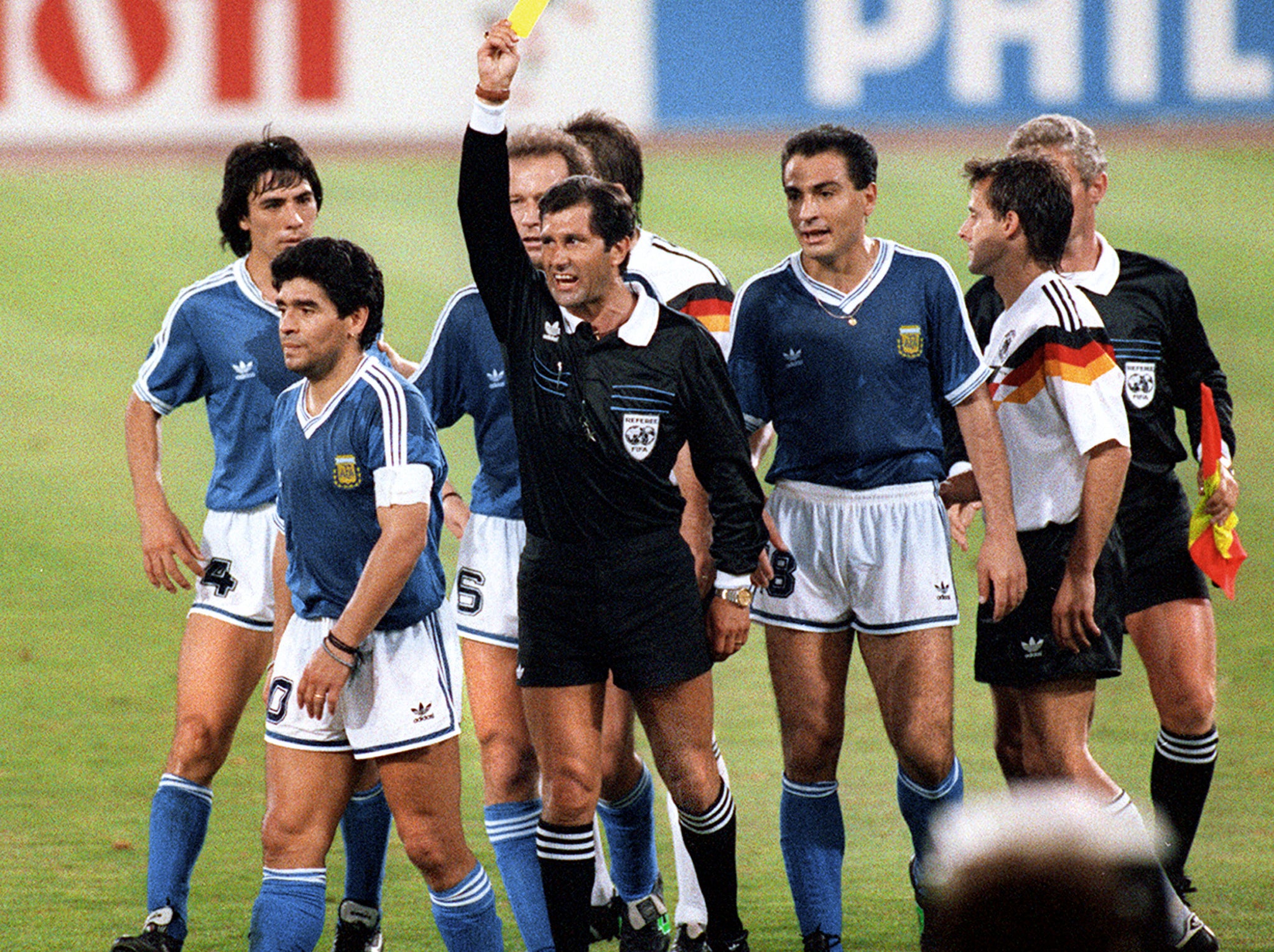
And even club teammate Ciro Ferrara says “I’m still upset at Diego.”
Others were worse than upset. As Italian fans booed the Argentine anthem ahead of the final because of Maradona, he is shown angrily muttering “sons of bitches, sons of bitches”.
It was to get worse. The Camorra, who once exploited him exactly because he was so adored, and thereby so indulged him to indulge themselves, now abandoned him.
The film argues this was when all his protections - from the press, from the judiciary - disappear. Eventually, his career disappears.
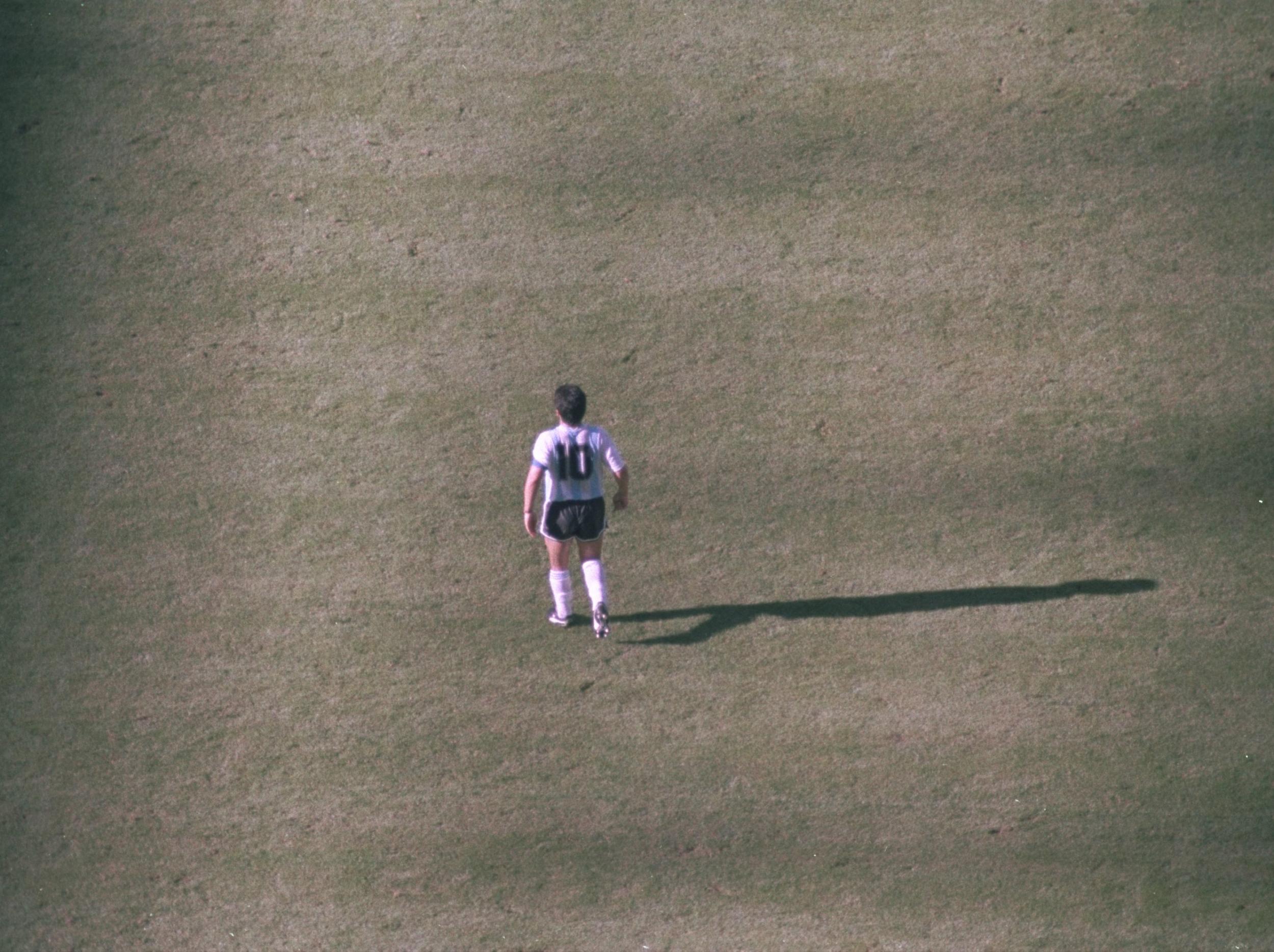
It is suggested Maradona feared this possibility, the other side of the adulation, when he is shown pleading for a transfer after the Uefa Cup in 1989. He knew he needed to get out. Napoli knew they needed to keep him. He was too idolised.
“So I was Maradona’s jailer,” the president Ferlaino says.
Once again, a victim of circumstance, a victim of his talent.
Maradona is shown making his own conscious decisions at other points, as well as acting on that talent, in one of the film’s more understatedly compelling scenes. It is when a genius reveals the mindset of genius.
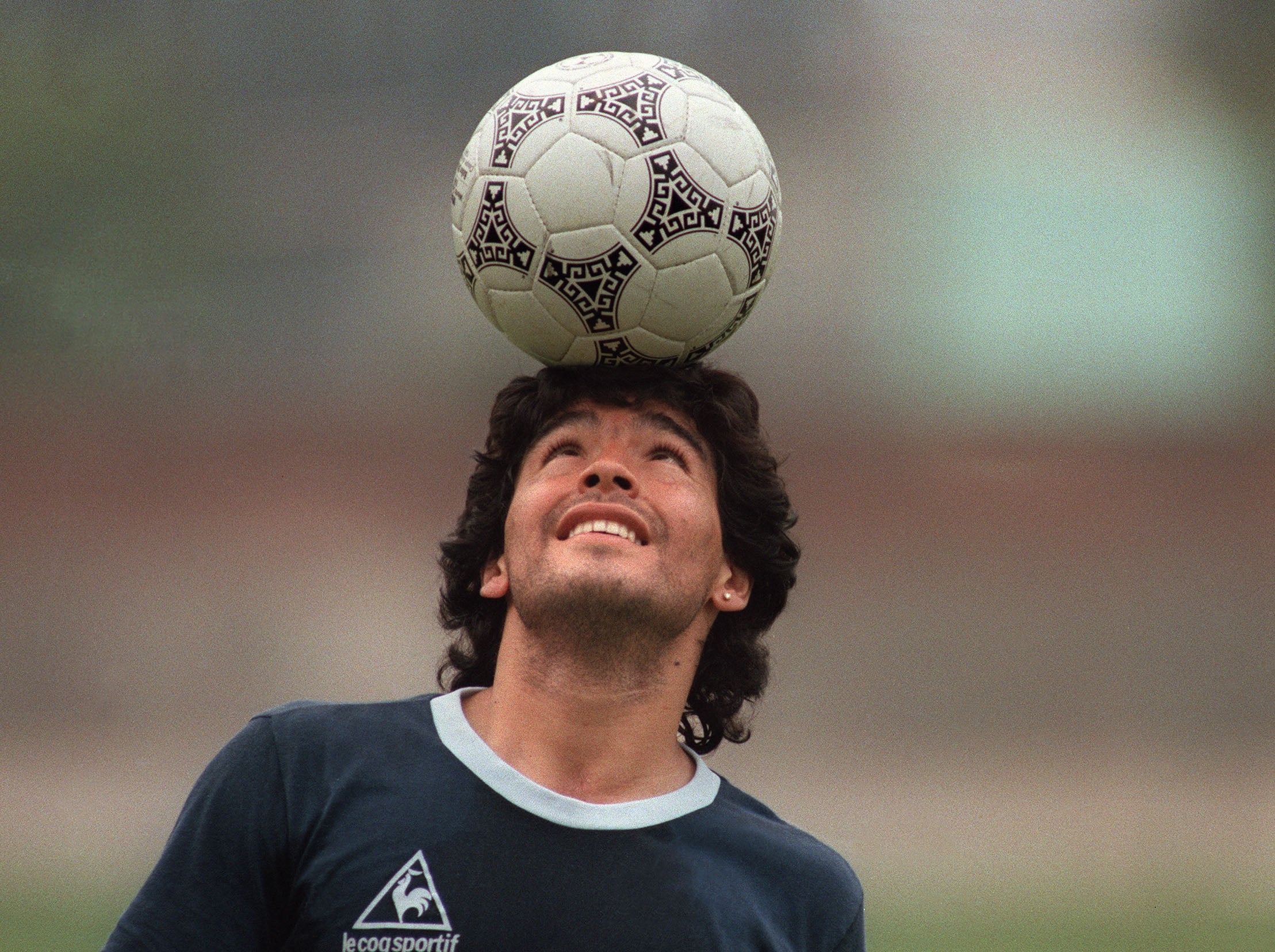
Maradona explains how he had to change his game for the rigours of Serie A.
“Italian football was played at a different rhythm, rougher,” Maradona says, amid footage of him suffering the most brutal fouls. “I had to adapt and learn to play at a different speed. I sped up my timing in order to get into play. If I went one way, abandoning my technique, so that I could run faster, I would’ve been useless. And if I went top-speed, with my technique, surely my technique wouldn’t have worked. I had to find a balance, which wasn’t easy.”
Bear in mind this is the player with arguably the greatest natural talent in history. And here he is not doubting that talent, but having to think how to more calculatedly apply it. He did find that balance. He applied that talent. Another contrast. Another eventual consequence.
“The price was too high,” Arcucci argues of that very ability. This is the theme of the film.
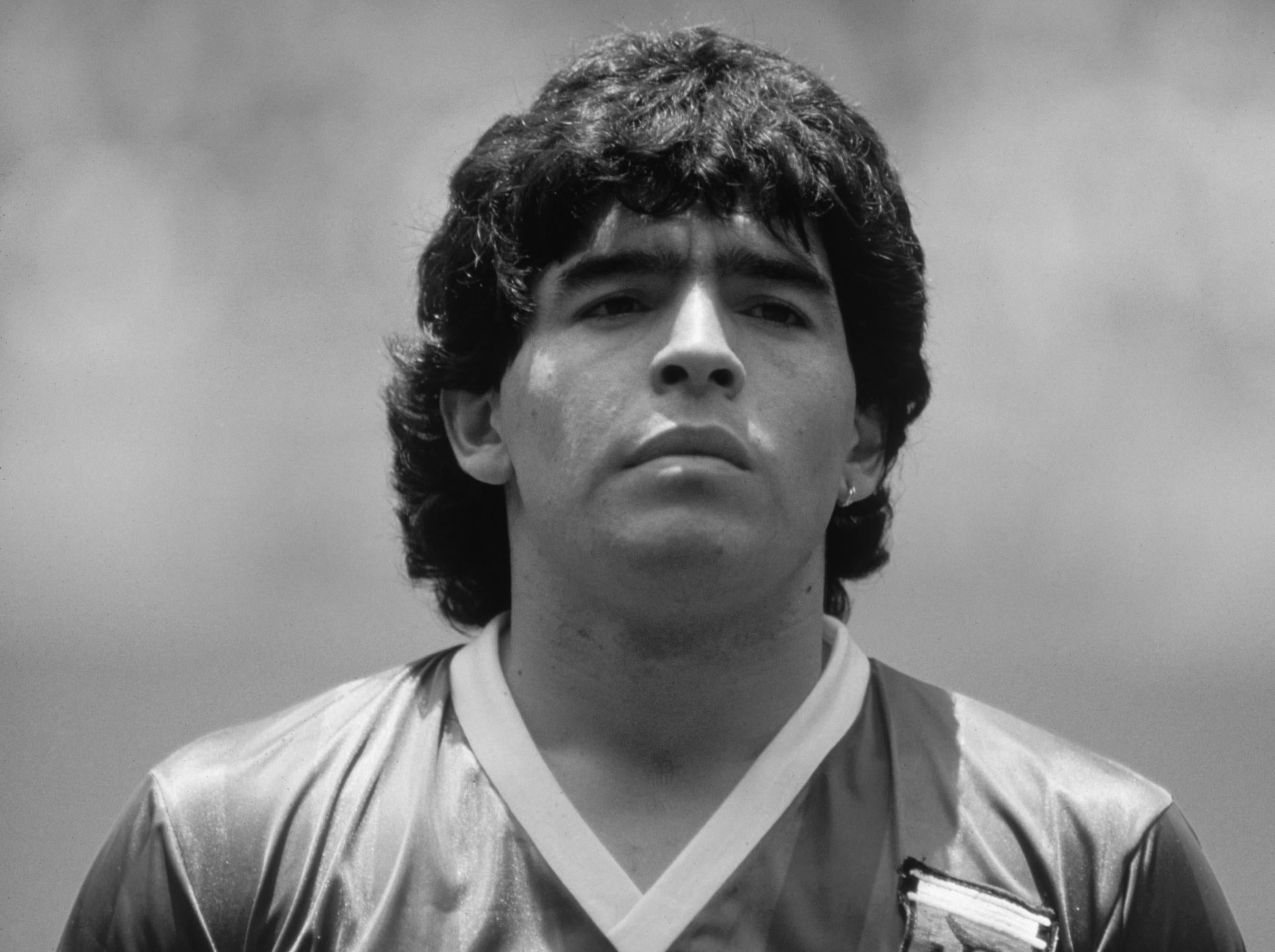
And yet it does end on a hopeful note, that many may miss.
There is a theory that Kapadia actually wanted to emphasise Maradona’s deep desire for a male heir, and make this a central theme. It is instead only hinted at, through so much coverage of his many sisters and daughters, and then that final scene during the end credits.
The father - at last - happily meets and acknowledges his son.
Maradona and Diego, finally reconciled.
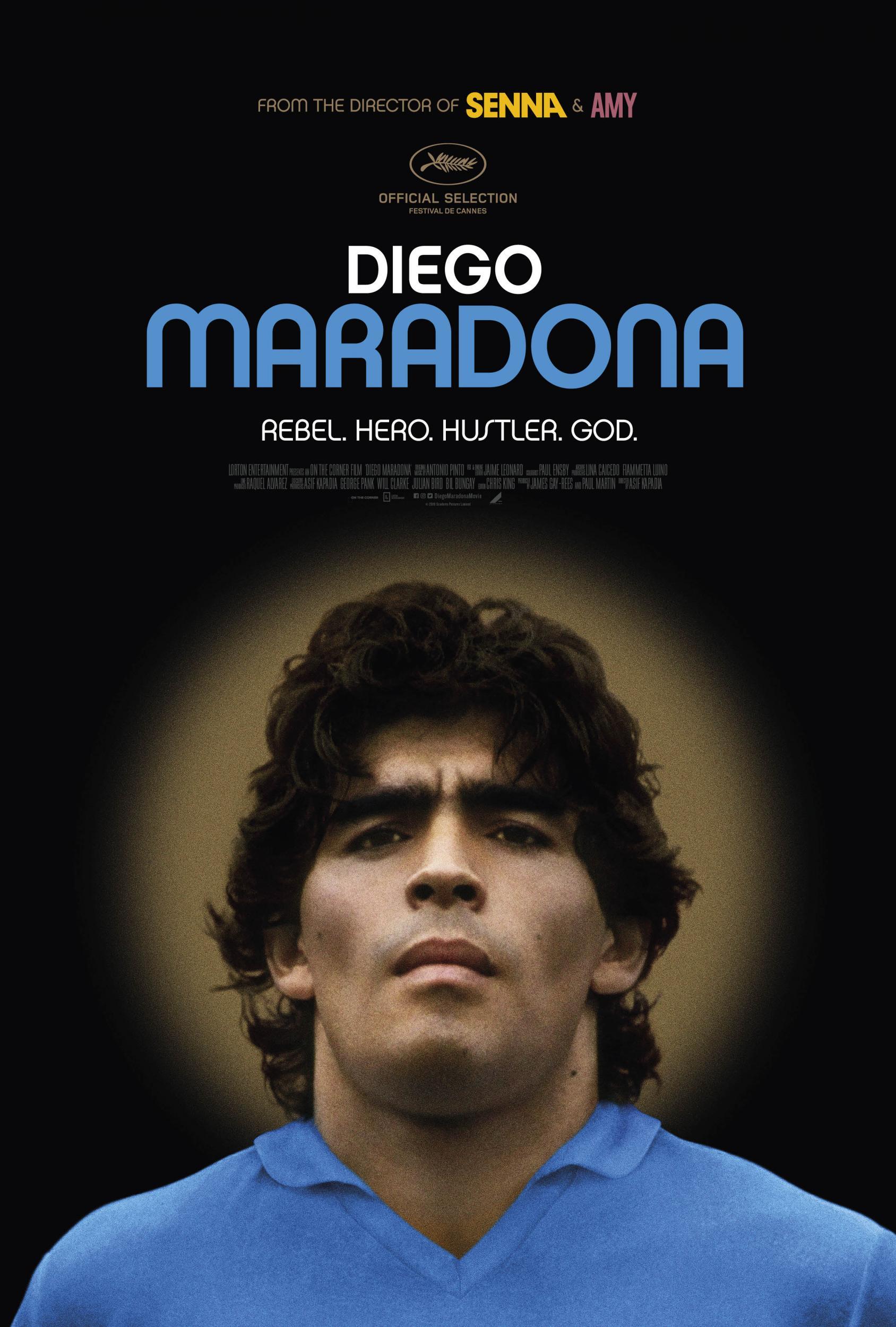
Join our commenting forum
Join thought-provoking conversations, follow other Independent readers and see their replies
Comments